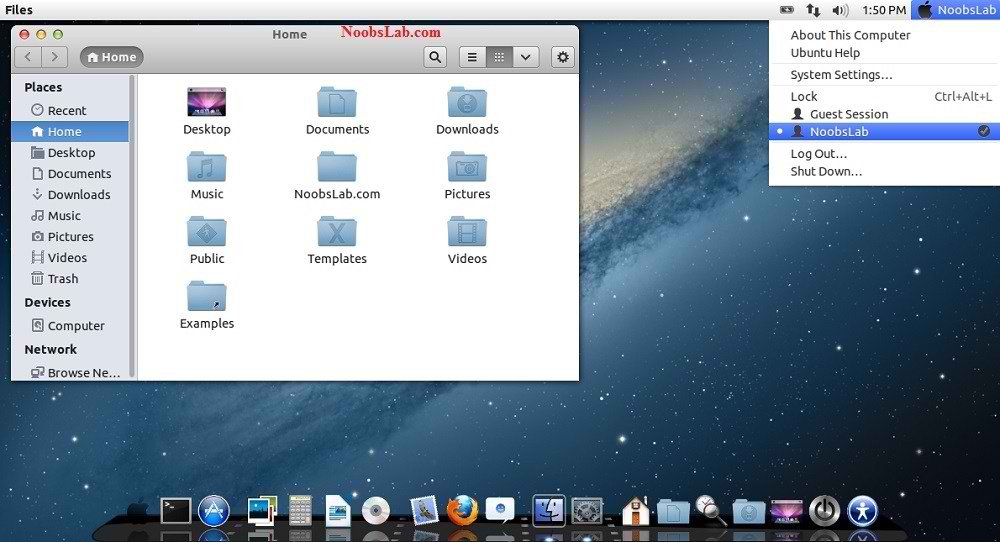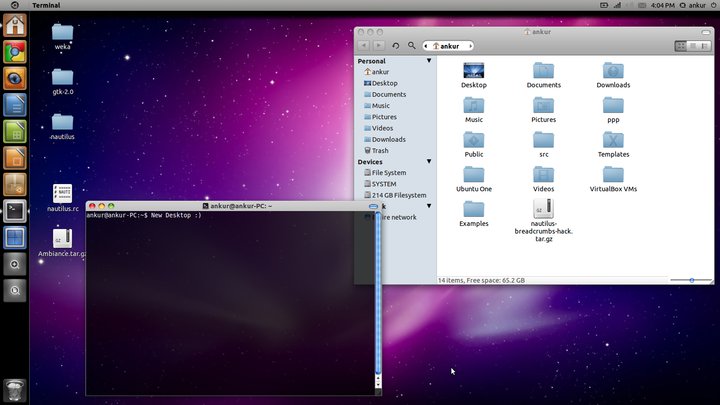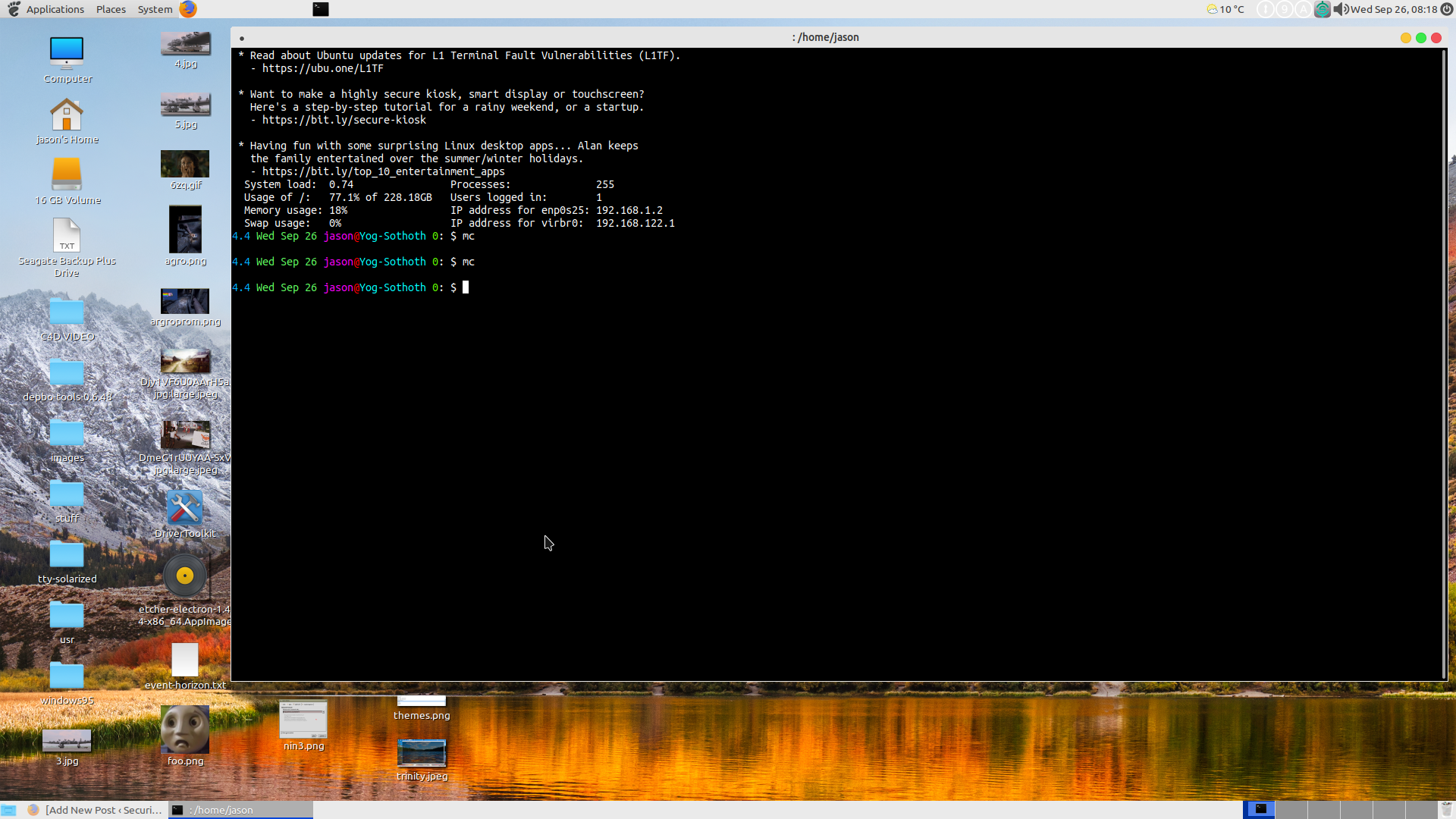Apple took the attendees at its annual developer conference WWDC on a tour of OS X 10.10 Yosemite, the next release of its popular desktop operating system due this fall.

Finally after a lot of work MacBuntu OS Y (Macbuntu Yosemite/El Capitan) transformation pack is ready for Ubuntu 15.10 Wily Werewolf. This process could be automatic but in this way most of the users won't get what's going on behind the scene, so we keep it. Search for Cisco Vpn Client For Mac Os X Yosemite Download And Citrix Vpn Client For Ubuntu Ads Immediately. Then install the macbuntu-icons-v6 and ubuntu-tweak packages through Software Center or Terminal (sudo apt-get install macbuntu-icons-v6 ubuntu-tweak). Open Ubuntu Tweak. Click on 'Themes', then 'Icons'. Select 'Macbuntu-os'. You should now have OS X Yosemite-like icons.
Amongst the multitude of changes, updated apps and interface improvements of the refreshed desktop was one feature that those of us using Ubuntu will detect a faint whiff of familiarity about…
Spotlight just got scoped.
Online Sources Come to Spotlight
Part GNOME Do and part Unity Dash, the new Spotlight is a refinement of various features those of us on Linux have been using for the past few years.
If you’re not familiar with Apple’s OS X (and since you’re reading an Ubuntu-based website there’s a good chance you’re not) Spotlight is a desktop search tool for finding and opening your installed apps and documents.
Mac Os Yosemite Icons For Ubuntu Virtualbox
Until now it’s been chained to the top of the screen – a drop-down box with one-line results. For the upcoming release of Yosemite Apple has reimagined it into something more akin to the Unity Dash that ships in Ubuntu.
In 10.10 pressing Command + Space opens a Spotlight box in the centre of the screen. As a search term is entered into the text box a scrollable list of results, complete with previews, appears within it.
In some ways it’s reminiscent of GNOME Do (itself partly inspired by an older Mac app called Quicksilver) or Synapse, albeit with Unity Scope usefulness thanks to the integration of results from select online sources, such as Wikipedia and iTunes.
Obviously the idea of collating a set of search results is not exclusive to Ubuntu. A number of apps, OSes and projects have tried to do similar things over the years, including the aforementioned GNOME Do.
What gives Apple’s attempt a faint dose of the familiar is the use of previews. Wikipedia snippets. Music playback options. In-preview actions. In iOS 8 Spotlight will even recommend applications you don’t have installed but thinks you might like — sound familiar?
No longer is the tool confined to simply finding and launching local files and documents. Spotlight can now offer up information from online sources like Wikipedia, Yelp and Bing. Some types of information, such as movie show times, local restaurants and map results, are automatically localised. Impressive contacts, e-mail and iMessage integration was also demoed.
Their implementation is, based on what they showed off, arguably more intelligent than that in Unity. Unnervingly so. Apple, through various features demoed, repeatedly touted the privacy protection being baked into apps, APIs and other features.

Unlike Unity, however, Apple isn’t throwing the whole kitchen sink into the mix. You won’t be served shopping results nor will you have to rummage through obscure music titles and irrelevant weather results to find what you want.
It’s not always who created an idea, but whose implementation is better. Until the first betas of OS X 10.10 are made available in the summer we only have a polished pitch to go on. But, as distasteful as some may find it, if it works as good for me as it does for them, I’d say Apple has moulded something pretty awesome out of what can all too easily result in a total mess.
Beyond Similarities, Towards Convergence
We’ll leave the full rundowns to dedicated sites like MacRumors and The Verge. What’s interesting is that, as with the previous two releases, features at the heart of a Linux distribution have been remoulded and baked into Apple’s desktop OS.
Past the similarities of Unity’s Scopes, Mac OS X 10.10 also adds a few other bits into the mix that relate (however tangentially) to Linux.
For example, it now comes with a new look inspired by the translucent “layered” design of iOS 7. While there isn’t quite anything like the new theme available on Linux, we all take for granted the extensive theming capabilities offered by Linux desktops. There are literally hundreds of themes available, spanning all sorts of styles, catering to every fad, whim and fancy that passes by.
For long-time OS X users a bit of translucency and an optional dark theme seem revolutionary.

Also touched on at WWDC was something particularly intriguing.
The ‘Continuity’ feature Yosemite debuts intrigues me more than anything else touted by Tim Cook during his keynote. From afar it also looks like an alternative take on convergence.
Whereas Canonical is fixated on unifying the OS, UI and display server at a code level – thus allowing for the same apps to run on all devices but display a different face depending on the screen size – Apple appears to be content to let a phone be a phone, a tablet be a tablet, and a desktop OS be a desktop OS. The emphasis seems to be less on binary unification of devices and more on how seamless the user experience between them is.
Through Continuity Apple users will be able to start work on a document, typing an e-mail or reading a webpage on an iOS device and then instantly ‘pick up’ on OS X right from where they left off. And vice versa.
Google is said to be preparing something along similar lines in Project Hera. Looking ahead further Android may even soon be able to enable seamless connectivity to a big screen through the Chromecast and Android TV, with the UI adjusting to match — something that would make Ubuntu’s wired ‘dock to become PC’ feature seem old fashioned before it’s been built!
Various iPhone features will also be available on the desktop version of OS X 10.10. Users will be able to make and take calls, send and receive SMS messages. Being able to answer a call on your desktop even though your iPhone is in your bag downstairs is a trivial sounding feature, but one that is a great example of how seamless and connected a user experience in a multi-device world should be.
Conclusion
It’s too early to tell if Apple’s attempt at fusing online and local results will fare any better than Unity’s attempt. But what is clear is that despite the flak levelled at Canonical on its introduction, they were ahead of the curve in seeing the potential.
Free Icons For Ubuntu
Unity 8 on phones and tablets already introduces a number of key changes to Scopes aimed at addressing a lot of past criticism. The result sits in stark contrast to that being offered by Apple in Yosemite and iOS 8.
Download Ubuntu For Mac
With such form, one can’t help but wonder if, this time next year, we’ll once again be firing up a new draft to write about yet more Ubuntu features being embraced by the Apple faithful…

Comments are closed.